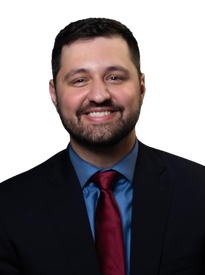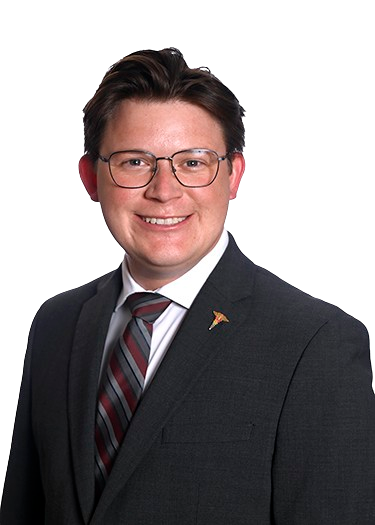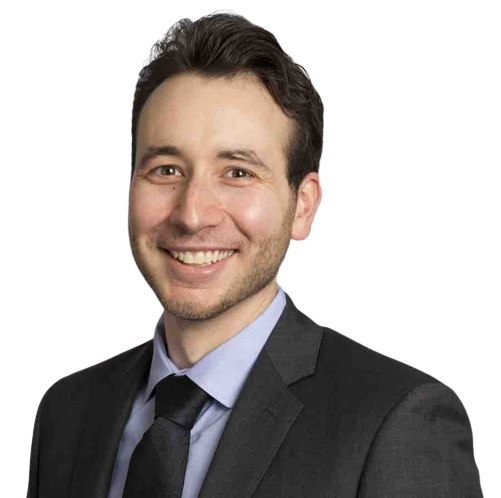Current Research Track Residents

Hey there! I was born in Venezuela and grew up just outside of Philly in the town of Pennsauken, NJ. Since as far back as I remember I was interested in brains and wanting to be a scientist. At Rutgers New Brunswick, where I went to college, I studied brains alongside philosophy and learned about the physician scientist path. My next step was the Tri-Institutional MD-PhD program in New York City. I studied how brains make sense of the social world by doing electrophysiology in non-human primates during my PhD at Rockefeller University. I got into coding and bringing my love of video games into my work by using computer generated stimuli of social scenes. Before finishing medical school, I took a brief detour in Ithaca to complete a Masters of Engineering in Biomedical Engineering and study psychedelics. Psychiatry has long been the most interesting speciality to me - examining how brains make minds, and how we can heal their dysfunctions. My goal is to develop tools and paradigms in the space of neuroimaging, bioinformatics, and neuromodulation. Beyond the hospital, I love to explore the city, play video games, and watch stand up comedy.

Yocasta Alvarez-Bagnarol, MD, PhD
Hi, I’m Yocasta Alvarez-Bagnarol! I was born in Caracas, Venezuela, and raised in San Juan, Puerto Rico. I majored in molecular biology at the University of Puerto Rico (UPR), where I later joined the MD/PhD program. I performed my PhD work at the National Institute on Drug Abuse (NIDA), were I studied the neurobiology of opioid use disorder (OUD) using a multidisciplinary approach that combined chemogenetics, anatomical tracing, and behavioral analysis in preclinical models of heroin withdrawal. When I returned to medical school at UPR, I was deeply moved by patients’ journeys toward mental health recovery during my psychiatry clerkship. The complexity of psychiatric illness highlighted for me the urgent need for evidence-based approaches grounded in our growing understanding of neural circuits and neurotransmitter systems. As I continue to grow as a physician-scientist, I’m particularly interested in exploring the use of neuromodulation techniques as therapeutic interventions for OUD, and in integrating neuroimaging to better understand the circuit-based effects of these treatments. Outside of work, I enjoy working out, practicing yoga, reading psychological thrillers, building puzzles and Legos, visiting art museums, spending time with friends and family, and trying to keep my plants alive.

I grew up in the Washington, DC area and studied neuroscience and biochemistry at the College of William and Mary. I fell in love with the brain, and after graduation spent two years in a post-baccalaureate research fellowship at the NIMH, where I studied circuit-based and neurosteroid therapeutics. I then completed MD training at University of Florida College of Medicine, where I continued neuroscience research. During rotations, I realized my passion for caring for patients' mental health around pregnancy and menopause and I was drawn to the gaps in knowledge surrounding reproductive psychiatric disorders. My long-term goal is to become a reproductive psychiatrist and independent investigator focused on risk prediction and early intervention for psychiatric disorders across the reproductive lifespan. The deep care for patients, broad opportunities, and warmth amongst co-residents made Penn Psychiatry stand out to me on interview day and I feel so lucky to be part of such an amazing class! Outside of medicine, I enjoy caring for my pets and houseplants, spending time with family and friends, and reading.

My research journey began at Yale, where I studied how chronic stress affects fear learning and alters neuroplasticity. As I watched friends and family struggle with psychiatric distress, I knew I wanted my research to speak to the needs and experiences of patients. After graduation, I investigated fundamental principles of circadian biology and how circadian rhythms are altered in animal models of Tuberous Sclerosis Complex at Boston Children’s Hospital. I then joined Columbia University to pursue an MD/PhD. My thesis work used mouse models to study the activity of thousands of neurons to better understand social recognition memory and identified new brain regions crucial for social fear and avoidance. During residency, I plan to combine my interests to investigate how stress and anxiety alter neural activity and rhythms during sleep (and beyond), with the hope of developing new interventions for individuals living with psychiatric disorders and sleep disturbances.

I am a research track resident with an interest in neuroimaging. I went to college in Houston where I completed a BS in math and became interested in software and algorithm development. I used this as a basis for a few different research endeavors during my graduate studies at WashU in St. Louis where my main thesis focused on software and hardware development within optical neuroimaging. My clinical interest in psychiatry stemmed from witnessing the staggering effects social determinants of health had on patients I was caring for in St. Louis. I hope to see how developing more affordable and accessible interventional neuromodulation techniques could serve as a resource to help mitigate this.

I completed my undergraduate studies at Temple University with a Bachelor of Science in Biochemistry, a minor in Spanish, and a certificate in Genome Medicine. I then attended medical school at the Columbia University Vagelos College of Physicians and Surgeons, where I joined the MD-PhD dual-degree program. I completed my PhD at Columbia University in the Systems Biology Track of the Integrated Program in Cellular, Molecular and Biomedical Studies. My thesis focused on the genomics of immune dysregulation in the context of cancer. During my clinical rotations in medical school, I developed a passion for psychiatry. I am particularly interested in psychiatric genomics and utilization of computational approaches to better understand and treat mental illness. I am honored to be continuing my clinical and research training here at Penn. Outside of the hospital, I enjoy cooking, gardening, and hiking.

I grew up in Thief River Falls, MN and went to Concordia College in Moorhead, MN. After spending a year at the University of Oxford studying various aspects of Neisseria type four pili molecular biology, I joined the MD-PhD program at Yale University. I worked with Todd Constable and obtained my PhD in neuroscience, investigating individual differences in functional connectomic data in neurodevelopmental conditions. I look forward to continuing this work at Penn and working with amazing researchers and clinicians across the department. In my downtime, I love ice hockey (go MN Wild!), yoga, reading, and trying new restaurants.

I grew up in College Station, TX and attended Rice University in Houston, TX for undergrad. There, I worked toward a degree in Biochemistry and Cell Biology while studying oxalate metabolism in plants (on the coolest rooftop greenhouse in the Texas Medical Center). I became fascinated by the vast opportunities and complex questions in neuroscience and joined the MD-PhD program at WashU in St Louis, where I studied pharmacology and physiology of GABA-A receptors. Utilizing a variety of electrophysiological methods, much of my thesis work centered on the neurosteroid allopregnanolone and its effects on receptor, cell, and network activity in the brain to better understand its antidepressant effects. After returning to clinical training, my interest in clinical psychiatry was affirmed, I expanded my passion for psychopharmacology, and I uncovered a new curiosity for interventional psychiatry and neuromodulation. Clinically, I am interested in reproductive mental health, LGBTQ+ health, psychosis, and catatonia. I’m excited to join the Penn Psychiatry community and look forward to drawing inspiration from my clinical encounters to guide the next phase of my research training. Outside of work, I enjoy gardening, cooking, knitting, and exploring Philly with my partner Chris.

I grew up in northern New Jersey and studied neuroscience at Hamilton College. I first became interested in medicine during a post-bac fellowship at the NIH where I conducted neuroimaging research. I then completed MD/PhD training at Brown, where my graduate work used awake human intracranial recordings to identify neural biomarkers of Parkinson's disease symptoms such as tremor and bradykinesia. Upon returning to my clerkships however, I realized psychiatry was my calling as it allowed me to compassionately treat patients while understanding the complex interactions of mind, brain, and life experience. At Penn I am investigating how patients with treatment-refractory OCD make risk-benefit decisions, and how their decision-making changes with clinical interventions such as deep brain stimulation or focused ultrasound. I plan to specialize in interventional psychiatry, using neuromodulation to both treat patients and better understand the relationship between psychiatric illness and cognitive neuroscience. Outside of the hospital and lab, I enjoy exploring Philadelphia's parks with my family.

I became interested in research after spending a summer studying the prevalence of psychiatric illness in earthquake survivors in Haiti. I became intrigued by resilience to social stress and worked in a lab as an undergrad at Duke studying the neural circuits involved in susceptibility to social stress in a rodent model. I pursued an MD/PhD at UVA and used human stem cells to study how genomic stress during brain development can cause DNA damage in high-risk psychiatric genes. I look forward to joining the Penn research track and combining my interest in understanding mechanisms of resilience to stress with my passion for community mental health work.

I grew up in New Jersey in the suburbs of NYC. From there I headed to Haverford College just outside Philly, where I majored in chemistry and found my passion for research during my senior thesis on molecular regulation of protein aggregation in Huntington’s Disease. In pursuit of a mixed career as a physician-scientist, I went on to the MD/PhD program at WashU in St. Louis, where my PhD work explored how focal cortical injury and stimulation change brain network dynamics, using neuroimaging and electrophysiology in mouse models. I am hoping to clinically specialize in interventional neuromodulation therapies like ECT, TMS, and ketamine, and blend this with basic science research on the physiological mechanisms of brain stimulation using neural recordings in animal models. In the psychiatry world, I’m also interested in addiction, LGBTQ populations, and consult liaison psychiatry. In my free time, I enjoy cooking, home fermentation, hiking, and petting my three cats.
Back to Top

